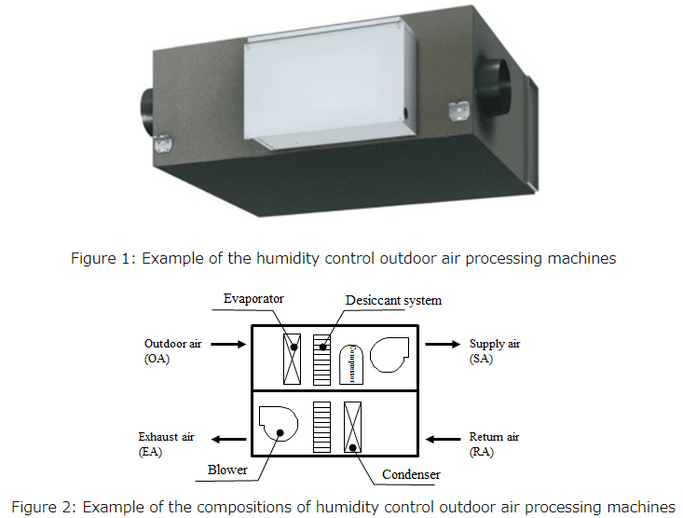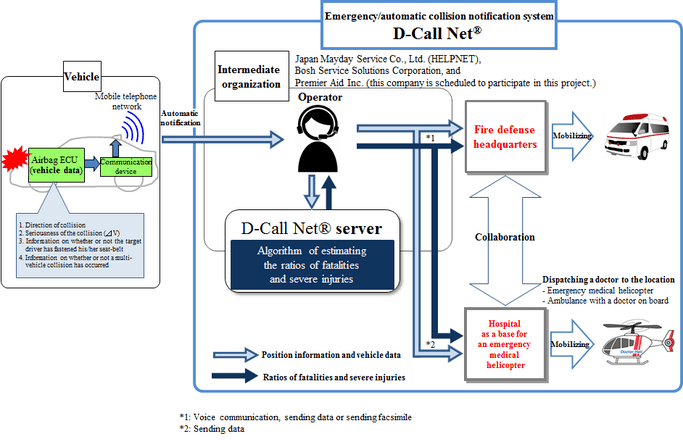Establishment and revision of JIS for humidity control outdoor air processing machines by heat pump desiccant systems; algorithms of estimating the levels of injuries for emergency/automatic collision notification systems (D-Call Net); common frameworks for developing and using systems and software, etc.
June 22, 2020
The Japanese Industrial Standards (JIS) is a collection of national standards stipulating the criteria for mineral or industrial products, data and services in Japan, including their quality, performance and test methods. The Ministry of Economy, Trade and Industry (METI) has been revising and newly establishing such standards in response to societal and technological changes. METI publicly introduces the newly established and revised standards which are especially important for the economy and for the public once a month in a press release.
Outline of the new establishment and revision of standards
In June 2020, METI newly established 13 standards and revised 10 standards (see Appendix 1). In particular, METI believes that the following establishment and revision of the standards are especially important.
(1) Establishment of the JIS for humidity control outdoor air processing machines by heat pump desiccant systems
Among humidity control outdoor air processing machines incorporated into commercial air-conditioning systems for office buildings, retail stores, hospitals, plants and other facilities, heat pump desiccant systems are able to efficiently and stably control humidity. Companies have been showing expectations for such systems as those creating a high-level balance between energy conservation and comfort.
Against this backdrop, METI established a JIS for the performance and test methods of humidity control outdoor air processing machines by the systems. This establishment is expected to allow companies not only to quantitatively compare the performance of the systems, smoothly select products and develop environments for fair competition but also to contribute to creating new markets and disseminating energy-saving equipment.
*Note: The JIS was established taking advantage of the Standard Development Program for the Creation of New Markets.

(2) Establishment of the JIS for algorithms of estimating the levels of injuries for emergency/automatic collision notification systems (D-Call Net)
Recently, emergency medical helicopters with doctors on board (hereinafter referred to as “emergency medical helicopters”) have been introduced into emergency medical services and are greatly contributing to an increase in the ratios of saving patients’ lives. However, ambulance team members generally decide on whether or not they should request an emergency medical helicopter after they have arrived on location, and this causes a challenge in flying emergency medical helicopters quickly to patients.
To overcome this challenge, more and more emergency medical service industries have been introducing an emergency/automatic collision notification system (D-Call Net) that is able to automatically judge whether or not a request for mobilizing an emergency medical helicopter should be issued based on the facts of traffic accidents, e.g., directions from which collision forces are applied to the vehicle that has caused the target accident or the magnitude of the force. Against this backdrop, METI established a JIS for methods of developing algorithms of estimating the levels of injuries and methods of assessing such algorithms.
Dissemination of such automatic notification systems that satisfy the JIS is expected to not only allow emergency medical service industries to accurately, quickly and automatically call a request for emergency medical helicopters, which has been conducted mainly after the arrival of ambulance team members to the location, but also to reduce the number of fatalities caused by traffic accidents

(3) Revision of the JIS for providing common frameworks for developing and using systems and software
Recently, more and more systems and software have been becoming diverse and increasing in scale.Therefore, development and use of these systems and software require both ordering companies and contractors to foster common recognition. As means for supporting them, a group of international standards and a group of JIS corresponding to these international standards have been established. Among these standards, METI revised JIS X0171 stipulating information items for documentation in order to add new information items, e.g., “Communication procedure” and “Information security procedure”.
Advancement of development and use of systems and software that satisfy the JIS is expected to not only further promote mutual understanding and consensus building between stakeholders at home and abroad but also advance development of systems and software.
Table: Relationship between JIS X0171 and related JIS
| International standard | JIS corresponding to the international standard | Requirement stipulated in these standards |
|---|---|---|
| ISO/IEC/IEEE 12207:2015 | X0160 | Processes, work and actions for developing and using software(which include the requirements for document preparation.) |
| ISO/IEC/IEEE 15288:2015 | X0170 | Processes, work and actions for developing and using systems (which include the requirements for document preparation.) |
| ISO/IEC/IEEE 26531:2015 | X0154 | Preparation and management of contents for preparing the documents mentioned above |
| ISO/IEC/IEEE 15289:2017 | X0171 | Information items required to be written in the documents mentioned above (94 information items) |
Outline of the JIS
The JIS stipulate types and quality of products, data, services, etc., test or assessment methods for ascertaining such types and quality, and the values of standards that businesses are required to meet. Producers, service providers, product users and consumers and other stakeholders, for example, make use of these standards in their approaches to accessing quality products and enjoying provision of services in a secured manner.
METI has been establishing new standards or revising the existing ones for the JIS in response to technological advancements, changes in social environments and other factors as necessary.
Partial revision of the Industrial Standardization Act
The Bill for the Act of Partial Revision of the Unfair Competition Prevention Act, etc. (Act No. 33 of 2018) was approved at the 196th ordinary session of the Diet in 2018 and the Act was established. In line with this, the Industrial Standardization Act was partially revised to newly entitle data and services as targets of standardization under the Japanese Industrial Standards (JIS) and to change the title of the Industrial Standardization Act from “Kogyo Hyojyunka Ho” to “Sangyo Hyojyunka Ho” in Japanese as well as the title of the Japanese Industrial Standards (JIS) from “Nihon Kogyo Kikaku” to “Nihon Sangyo Kikaku” in Japanese. The revised Act came into force on July 1, 2019.

